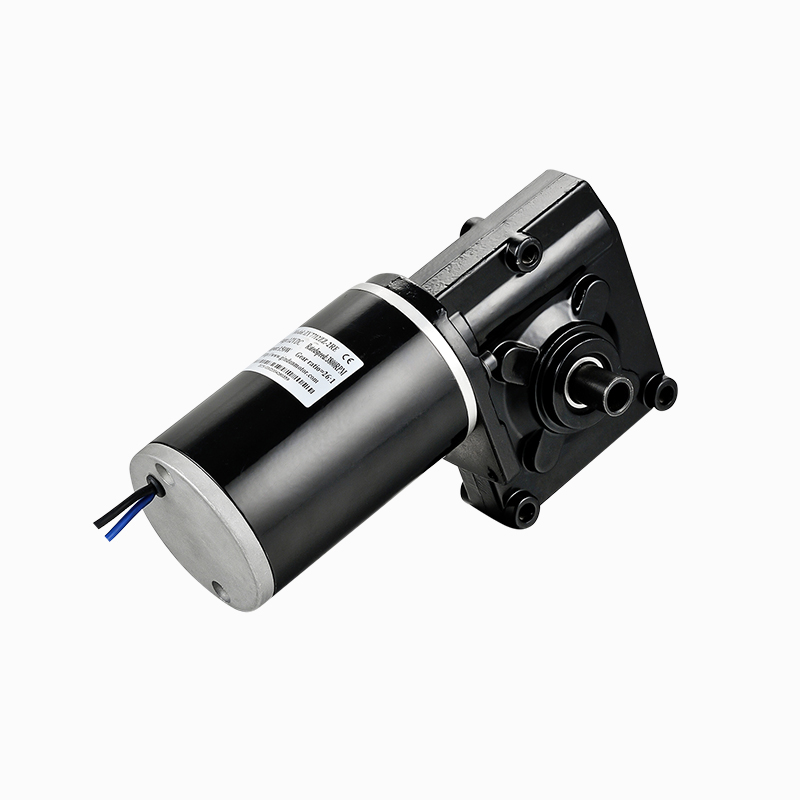Call us
+86-18023576732
+86-0579-89008006
Fax: +86-0579-82206899
As the demand for renewable and decentralized power solutions grows, small-scale wind and hydroelectric systems have gained attention for their ability to provide sustainable energy to remote communities, off-grid installations, and individual households. Choosing the right generator or motor for these systems is crucial, as efficiency, durability, and adaptability directly impact the effectiveness of the entire installation. The Permanent Magnet DC Motor is often considered a suitable candidate due to its design simplicity, direct current output, and relatively high energy conversion efficiency. Evaluating its performance under real-world renewable energy conditions provides insight into its strengths and limitations.

Efficiency and Energy Conversion Characteristics
In renewable power generation, efficiency is one of the important parameters. When applied in wind or hydro systems, permanent magnet-based machines typically provide high efficiency because they eliminate the need for external excitation and reduce copper losses in the field winding. This advantage translates into better utilization of the available kinetic energy from wind or water. At variable input speeds, which are common in renewable scenarios, the motor’s ability to maintain relatively high efficiency ensures that even low wind speeds or modest water flows can contribute meaningfully to energy production.
Performance Under Variable Speed Conditions
Wind and water currents are inherently variable, and a generator in such a system must be capable of adapting to fluctuating speeds without significant performance loss. A motor with permanent magnets offers stable voltage output proportional to speed, which is advantageous for battery charging systems and direct load applications. However, without appropriate power electronics, voltage regulation can be inconsistent, causing challenges in maintaining a steady output. Incorporating rectifiers, charge controllers, and voltage regulators can significantly improve the performance of these systems, ensuring a reliable electricity supply even under variable natural conditions.
Mechanical Robustness and Durability
Small wind and hydro systems often operate in harsh environments with high humidity, temperature fluctuations, or dust exposure. The reliability of the generator is therefore critical. Permanent magnet-based motors are relatively robust due to their simple structure, but proper sealing, corrosion resistance, and thermal management are necessary to ensure long-term durability. Bearings, in particular, can face high mechanical stress due to continuous operation at variable speeds. Regular maintenance schedules and protective housing design can enhance system longevity and reduce downtime.
Integration into Energy Storage and Distribution
Most small-scale renewable energy systems are designed to charge batteries or feed microgrids. The direct current output from a permanent magnet-based motor is naturally compatible with battery storage systems, simplifying integration compared to alternating current generators. This reduces the need for complex conversion equipment, lowering system costs and improving reliability. In hybrid setups where wind or hydro power supplements solar or other renewable sources, the motor’s stable DC output streamlines the process of combining different energy inputs into a unified storage solution.
Economic and Practical Considerations
Affordability and ease of deployment are key factors in small-scale renewable projects. Permanent magnet-based machines are relatively cost-effective and widely available, making them a practical choice for community-level or household-scale energy solutions. Their high efficiency and straightforward maintenance further enhance economic feasibility. However, the initial investment in quality magnets and supporting electronics may be higher than alternatives, which can be a barrier in cost-sensitive regions. Balancing upfront investment with long-term energy savings is therefore a critical part of the decision-making process.
The application of permanent magnet-based motors in small-scale wind and hydro systems demonstrates clear advantages in efficiency, simplicity, and compatibility with direct current storage solutions. While challenges such as voltage regulation and durability under harsh environmental conditions must be addressed, these can be mitigated through proper design and supporting electronics. The Permanent Magnet DC Motor proves to be a reliable and effective choice for renewable energy applications where adaptability and long-term efficiency are crucial. By leveraging its strengths and addressing its limitations, small renewable systems can deliver dependable power to a wide range of off-grid and decentralized applications.
Contact Us